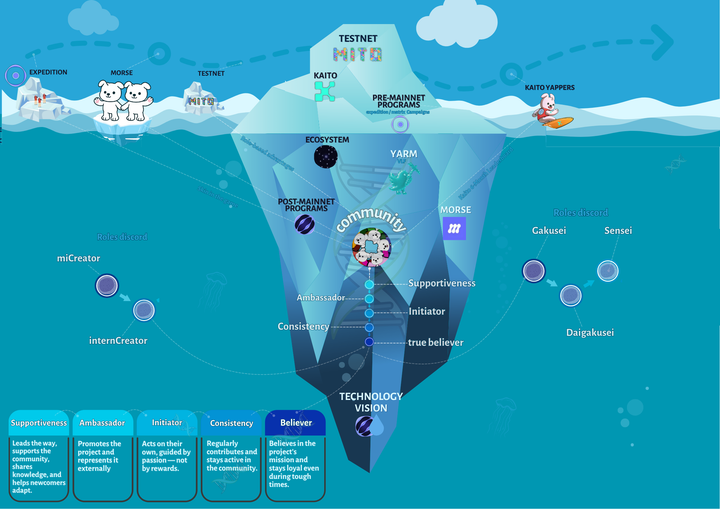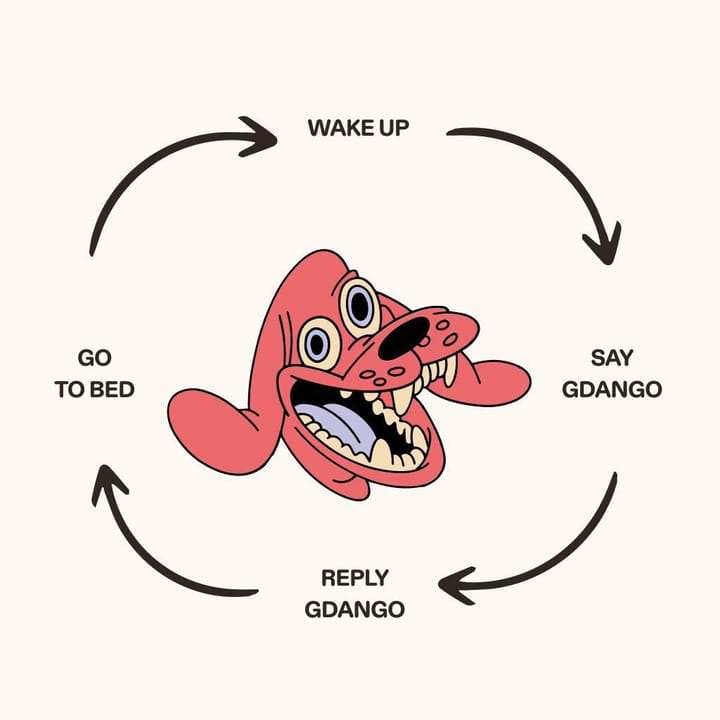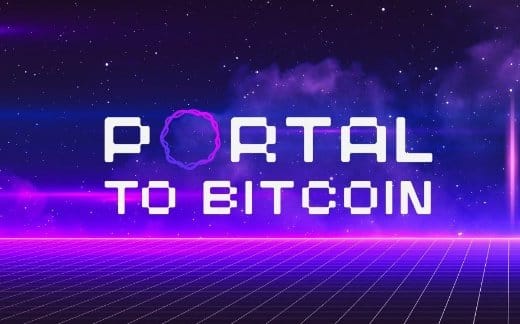The Zero-Knowledge Revolution: Why ZK Proofs Are Poised to Define the Future of Crypto
Overview: The Quest for Privacy and Scalability in Web3
The promise of Web3 — a decentralized, open, and user-owned internet — faces fundamental challenges in achieving both privacy and scalability without compromising security. Traditional blockchain designs often force a trade-off between transparency and confidentiality, while struggling to handle the transaction volumes required for mainstream adoption. This article explores the burgeoning field of Zero-Knowledge Proofs (ZKPs), a cryptographic breakthrough that offers a compelling solution to these dilemmas. We will delve into what ZKPs are, their diverse applications in enhancing privacy and scalability, examine prominent projects leading this charge, and argue why this technology is increasingly seen as the foundational layer for the next era of digital assets and decentralized applications.
Introduction: The Imperative for Confidentiality and Efficiency in the Digital Age
In an increasingly digital world, the tension between data transparency and individual privacy has become a central concern. For blockchain technology, this tension is particularly acute: while public ledgers offer unparalleled transparency and immutability, they often expose sensitive transaction details, hindering adoption for many real-world use cases. Simultaneously, the rapid growth of decentralized applications (dApps) has pushed existing blockchain networks to their scalability limits, leading to high fees and slow transaction times.
Addressing these twin challenges of privacy and efficiency is paramount for Web3 to achieve its full potential. A powerful cryptographic tool, Zero-Knowledge Proofs (ZKPs), is emerging as a leading contender to solve these critical issues, promising a future where digital interactions are both private and highly scalable.
What are Zero-Knowledge Proofs? The Cryptographic Foundation
At its core, a Zero-Knowledge Proof (ZKP) is a method by which one party, known as the "prover," can convince another party, the "verifier," that a statement is true, without revealing any information beyond the validity of the statement itself. This intriguing concept, originating from cryptography research in the 1980s, relies on three fundamental properties: "completeness" (an honest prover can always convince an honest verifier), "soundness" (a dishonest prover cannot trick an honest verifier into believing a false statement), and "zero-knowledge" (the verifier learns nothing about the secret information beyond the truth of the statement). ZKPs can be interactive, requiring a back-and-forth dialogue, or non-interactive, where a single message suffices for verification, making them highly versatile for blockchain applications.
ZKPs in Action: Enhancing Privacy on Blockchains
One of the most significant applications of Zero-Knowledge Proofs (ZKPs) is in enhancing privacy for blockchain transactions. Traditional cryptocurrencies like Bitcoin, while pseudonymous, have publicly accessible transaction histories, which can be a concern for users desiring confidentiality.
By leveraging ZKPs, projects can enable users to conduct private transactions on public blockchains, where details such as the sender, recipient, and remittance amount remain confidential. This capability not only enhances user privacy but also fosters a more secure and resilient financial ecosystem, appealing to users who prioritize confidentiality in their financial dealings. Examples include privacy-centric cryptocurrencies that utilize ZKPs to shield transaction details.
ZK-Rollups: The Scalability Solution for Congested Networks
Beyond privacy, Zero-Knowledge Proofs (ZKPs) are also at the forefront of solving blockchain scalability challenges, particularly through the development of "ZK-Rollups." These are Layer 2 scaling solutions that process transactions off-chain and then bundle them into batches. Instead of submitting every single transaction to the main Layer 1 blockchain (like Ethereum), a ZK-Rollup submits a single cryptographic proof (a "validity proof") that verifies the authenticity of all transactions in the batch without revealing their individual details.
This significantly reduces congestion and computation load on the main blockchain, thereby increasing transaction throughput and lowering costs. Unlike Optimistic Rollups, which assume transactions are valid until proven otherwise and have a dispute period, ZK-Rollups assume all transactions are false until proven valid, offering immediate finality.
Types of ZK-Rollups and zkEVMs: A Spectrum of Compatibility
The development of ZK-Rollups has led to various implementations, particularly in the realm of zkEVMs (Zero-Knowledge Ethereum Virtual Machines). zkEVMs aim to be fully compatible with the Ethereum Virtual Machine, allowing developers to deploy existing Ethereum dApps with minimal changes while benefiting from ZKP-powered scalability.
We can say these are categorized by their level of Ethereum compatibility, ranging from Type 1 (fully Ethereum-equivalent, offering the highest security but most complex to build) to Type 4 (language-equivalent, easier to build but less compatible). Projects like Polygon zkEVM, Scroll, and zkSync are actively developing different types of zkEVMs, each striving to achieve optimal balance between compatibility, performance, and proof generation efficiency.
Prominent ZK Proof Projects Leading the Charge
The Web3 landscape is witnessing a surge in projects building on ZK proof technology. Polygon zkEVM launched its mainnet in March 2023, processing millions of transactions and aiming for higher compatibility. Scroll also launched its mainnet in October 2023, focusing on a Type 3 zkEVM. zkSync, developed by Matter Labs, is another leading zk-rollup, known for its focus on performance and cost-efficiency.
Starknet, built by StarkWare, utilizes zk-STARKs for scalability, enabling high-frequency trading on platforms like dYdX. Other notable projects include Kakarot (a zkEVM written in Cairo), RISC Zero (a general computing platform based on zk-STARKs), and Darkfi (a privacy-centric cryptocurrency).
Beyond Privacy and Scalability: Diverse Applications of ZKPs
The utility of Zero-Knowledge Proofs (ZKPs) extends far beyond just privacy and scalability in blockchain. They are increasingly being applied in diverse sectors to enhance security and trust. For instance, ZKPs can enable decentralized identity solutions, allowing users to prove their identity or credentials (e.g., age, credit score) without disclosing personal information.
They can also be used in secure voting systems to ensure voter privacy while maintaining election integrity, or in supply chain management to verify product authenticity without revealing sensitive business data. Furthermore, ZKPs are finding applications in gaming and digital assets, allowing proof of NFT ownership without revealing transaction activity.
How might the widespread adoption of ZKPs for decentralized identity solutions reshape traditional KYC/AML processes and individual data ownership?
Challenges on the Path to Widespread Adoption
Despite their immense promise, Zero-Knowledge Proofs (ZKPs) face significant challenges on their path to widespread adoption. One major hurdle is their computational intensity; generating and verifying proofs, especially for complex statements, requires substantial computational resources, leading to high costs and limiting scalability for certain applications.
The intricate nature of cryptographic protocols also means that even minor implementation errors can introduce vulnerabilities, requiring deep cryptographic expertise. Furthermore, ZKPs often rely on specific cryptographic assumptions, and the advent of quantum computing poses a long-term threat to these foundations, necessitating the development of quantum-resistant protocols.
The Future is Zero-Knowledge: Why ZKPs are Crypto's Next Frontier
The continuous advancements in algorithms and hardware are steadily overcoming the computational and implementation challenges of Zero-Knowledge Proofs (ZKPs). Major players are investing heavily in ZK tech, integrating it into their Layer 2 ecosystems, and even using ZK compression to cut on-chain storage costs.
The ability of ZKPs to simultaneously address privacy, scalability, and security makes them uniquely positioned to define the next era of crypto. They are not just an incremental improvement but a fundamental shift that can unlock new use cases, attract institutional adoption, and bring Web3 closer to mainstream usability, making them an essential technology for the future of decentralized systems.
Conclusion: Building a More Private, Scalable, and Secure Web3
The proliferation of Zero-Knowledge Proof (ZKP) projects signals a profound shift in the Web3 landscape. This cryptographic innovation offers compelling solutions to the long-standing challenges of privacy and scalability that have hindered blockchain's mainstream adoption. From enabling confidential transactions and powering highly efficient ZK-Rollups to facilitating decentralized identity and secure voting, ZKPs are proving to be a versatile and indispensable tool. While challenges remain, ongoing research and development are rapidly pushing the boundaries of what is possible. As ZKPs become more efficient, accessible, and widely integrated, they are poised to become a foundational pillar of the decentralized future, ushering in a more private, scalable, and secure digital economy for all.
Mitosis References
🔗Links:



Comments ()